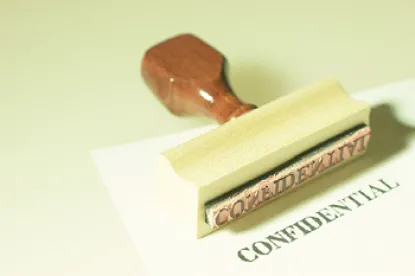Takeaway: The Board will not enter adverse judgment against a patent owner who cancels the challenged claims in a co-pending reexamination proceeding before a reexamination certificate is issued and the time to appeal has expired.
In its Decision, the Board declined to enter adverse judgment against Patent Owner under § 42.73(b)(2) and also determined that, under the circumstances presented, termination of the proceeding without a final written decision (as requested by Patent Owner) was not appropriate.
In an earlier decision, the Board instituted trial with respect to claim 10 of U.S. Patent No. 7,229,509. The Board later denied both (a) Petitioner’s motion to stay a co-pending ex parte reexamination and a co-pending reissue application, and (b) Patent Owner’s motion to stay or terminate this proceeding.
During the ’071 reexamination, Patent Owner submitted an amendment cancelling claim 10 of the ’509 patent, which is the only claim at issue in this proceeding, and submitted new claims 17–30. A Notice of Intent to Issue a Reexamination Certificate (“NIRC”) was mailed on August 20, 2015, cancelling claim 10 and finding claims 17–30 to be patentable.
In response to an Order to Show Cause from the Board “advising Patent Owner that [the Board] would proceed to enter adverse judgment against it pursuant to 37 C.F.R. 42.73(b)(2) absent a showing of good cause as to why adverse judgment should not be entered,” Patent Owner submitted a Response. According to the Board, in the Response:
Patent Owner contends that it “rewrote claim 10 as a new, narrower claim 17 to facilitate prosecution and did so expressly ‘without prejudice or disclaimer’ to the ‘subject matter’ of claim 10, which now resides in claims 17–30.”
* * *
According to Patent Owner, it “has not waived its appeal rights in the subject matter of claim 10, and no claim has been ‘finally determined to be unpatentable’ in a certificate ‘canceling’ such claim under 35 U.S.C. § 307(a) or § 318(a).” Patent Owner further contends that “future patentees could attempt to sidestep § 42.73(b) by not technically ‘canceling’ a claim but instead ‘amending’ the original claim to recite additional limitations” if Patent Owner’s cancellation of claim 10 in favor of new claim 17 were to be construed as a request for adverse judgment in this case.
In reply to Patent Owner’s Response to the Order to Show Cause, Petitioner argued that “adverse judgment should be entered against Patent Owner because Patent Owner voluntarily cancelled claim 10, and ‘even if claim 10 was only amended as suggested by Patent Owner’s [Response], original claim 10 would still no longer exist such that ‘the party has no remaining claim in the trial.’” Petitioner further argued that “Patent Owner would not be prejudiced by entry of adverse judgment because ‘it had the opportunity to amend claim 10 in the IPR and chose not to do so,’ and ‘also could have chosen not to amend claim 10 in the Re-Exam and simply added dependent claims and chose not to do so.’”
The Board explained, “[p]ursuant to 37 C.F.R. § 42.73(b)(2), “[a]ctions construed to be a request for adverse judgment include . . . [c]ancellation or disclaimer of a claim such that the party has no remaining claim in the trial.” In this case, the Board was “not persuaded that Patent Owner’s cancellation of claim 10 during the course of the ’071 reexamination is a cancellation of a claim such that Patent Owner has no remaining claim in the trial.” Here, a reexamination certificate has not yet issued or published, “will not issue until ‘the time for appeal has expired or any appeal proceeding has terminated,’” and Patent Owner has not waived its appeal rights with respect to the subject matter of claim 10. Thus, the Board determined that it could not conclude, at this time, that Patent Owner has no remaining claim in the trial.
The Board then considered Patent Owner’s request that the proceeding “be terminated pursuant to 37 C.F.R. § 42.72 without rendering a final decision, in order to conserve resources, preserve the work that resulted in the issuance of the NIRC in the ’071 reexamination, ‘and preserve the parties’ ability to challenge and defend claims 17–30 if necessary, without prejudice or estoppel.’” The Board noted that “Section 42.72 provides that ‘[t]he Board may terminate a trial without rendering a final written decision, where appropriate.’” In light of the advanced stage of the proceeding and Petitioner’s opposition to termination, the Board determined “that Patent Owner’s request to terminate without rendering a final written decision is not appropriate under § 42.72.”
Accordingly, the Board ordered that Patent Owner had shown cause that adverse judgment should not be entered against it and denied Patent Owner’s request to terminate the proceeding without rendering a final decision.
Kaiser Aluminum v. Constellium Rolled Products Ravenswood, LLC, IPR2014-01002
Paper 57: Order – Conduct of the Proceeding
Dated: September 16, 2015
Patent: 7,229,509 B2
Before: Michael P. Tierney, Donna M. Praiss, and Jo-Anne M. Kokoski
Written by: Kokoski



 />i
/>i

